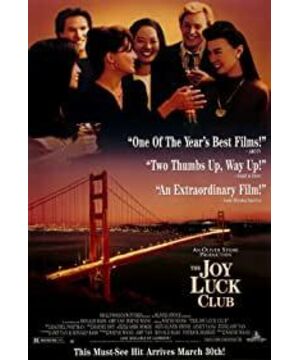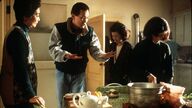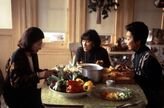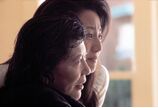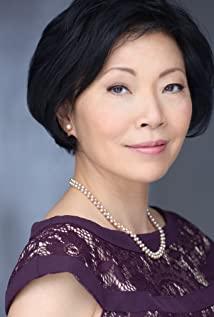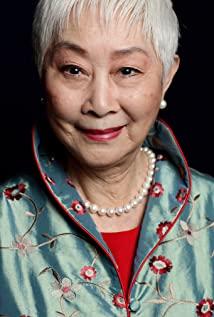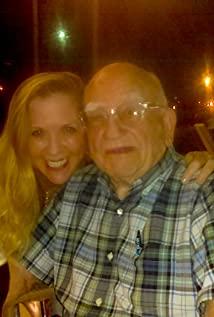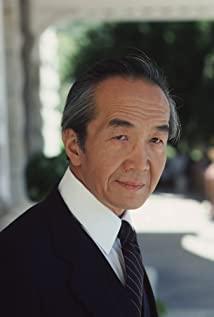The opening of the film redefines the connotation of the traditional Chinese allusion of "send goose feathers for thousands of miles", and at the same time sets the tone for the whole film: in the barbaric and backward China, the Chinese can only be reborn when they come to the United States.
The whole film connects the past lives of four Chinese immigrant women and the living conditions of their daughters with a Sino-American wedding banquet (representing the image of Chinese people integrating into the national oven of the United States), and on this basis builds four Different family frameworks (traditional Chinese-style family frameworks), and finally break them one by one from the perspective of the United States, in order to tell the audience (especially the Chinese in the new era of immigration): Only by completely breaking the shackles of Chinese thinking on you , escaping from the backward and barbaric society of China can give you a new life.
The four Chinese immigrant women in the film are also divided into two groups according to their narrative identities: through the narrative frame formed by Lin Duo and Su Yuan, two women at the bottom of society and their daughters, and Yingying and An Mei, the two From the perspective of self-transformation, self-transformation, and taking the initiative to break away from the old family frame, a woman who was in the upper class at that time advised her daughter to get rid of the narrative frame of backward ideological shackles. Group 1: Telling the ideological changes of three generations through the perspective of two generations: from the ignorant old China (the first marriage of Lin Duo and Suyuan and the Chinese of that generation) to standing at the critical point of Sino-American culture (Lin Duo and Su Yuan, two immigrants who spoke foreign languages but acted in a Chinese way), and then to ABC (Lin Duo, Su Yuan's daughter), the transformation process brought Chinese immigrants a longing for rebirth and thoroughness. Get rid of old culture (or Chinese) beliefs.
The second group: Self-awakening through self-resistance and persuading their daughters (the "new people" who have not yet shaken off the shackles of Chinese family thinking) to get out of those family frameworks by spreading the gospel.
In addition, the family framework formed by Suyuan and her daughter is the conflict between self-recognition under individualism (American perspective) and the "individual" under the traditional Chinese family framework and the "comparison" under traditional family education. What Suyuan built is a large framework of poor and backward China.
Along with the symbolic images of "Old Matchmaker", "Gaotang" and the vilified "Chinese Bride", Lindo comically outlines the tragic fate of the child bride under the feudal system and the framework of the backward and ignorant feudal family. His daughter builds a family framework under the hierarchy of seniority and inferiority (children should please their parents). The name of Lin Duo, who was deliberately portrayed as a picky miser in old age, and his son-in-law "Rich" is more like a mockery (Chinese obsession with "money").
And Yingying's name and experience are more like a re-enactment of the Chinese love tragedy of Cui Yingying and Zhang Sheng's "beginning chaos, ending abandonment" style. of forbearance and masochistic resistance), and as the recipient of his gospel, his daughter also faces a similar family framework.
Anmei escaped the family framework of "cutting meat and boiling soup"-style horror of ignorance and filial piety and the moral bondage of women under the three obedience and four virtues. The image of his wife, and his daughter also dared to shout, and also shouted in order to maintain her family status.
In the end, the film ends in a way that echoes the opening "send goose feathers for thousands of miles", allowing "Joan" to bring "American Gospel" to the closed China that has just opened up in a similar way as a missionary. Civilization" yearning).
Combining these points, "The Joy Luck Club" undoubtedly provides a shot in the arm for those Chinese who are eager to yearn for maritime civilization and Chinese immigrants who have not yet established a foothold, and inspires their longing and hope for the "American Dream".
Now, with the arrival of the third shift in the international perspective of Chinese films (China, which is extremely modernized, has become a subject with a global and human perspective), when we look back on this film, perhaps what we can see It's more about ugliness than the longing and hope at that time.
View more about The Joy Luck Club reviews


